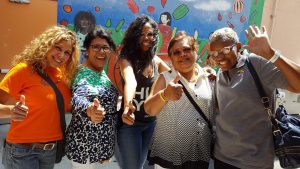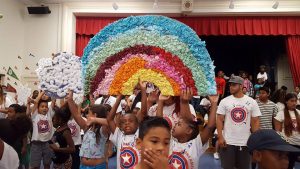On the eve of Special Needs Network’s 11th annual Evening Under the Stars autism gala, I’m reminded of the power of patience and what we can learn about this often elusive concept from icons like Nelson Mandela and Dr. Martin Luther King, Jr.
Both men bear evidence to the long-suffering nature of advocacy and the concept that systems change slowly. Both men demonstrated that in order to make a change in just about any social justice system, we have to be in it for the long haul.
As parents of and advocates for special needs kids, we are asked every day to tap into that kind of painfully deep patience. As the mother of an autistic teen, I struggle daily alongside other special needs parents to exercise the patience that these two greats demonstrated even in the most dehumanizing circumstances.
The trust they placed in slow change inspires me to keep at it, to shoulder the sacrifices so that we, too, can leave behind a brighter future for our children with developmental disabilities.
If Mandela and King could bring about long-lasting change in the most recalcitrant, most obstinate systems — including governments designed to discriminate against an entire race of people — then imagine what we can do for our special needs children if we maintain the same brand of unwavering persistence.
Yes, there will be sacrifices. Yes, there will be pain. Yes, there will be setbacks and frustration. But all will be dwarfed when our quiet determination results in fewer barriers and more resources for all children, including those with disabilities.
For those of us working to let in people who have been locked out, King and Mandela hold the key. Whenever I become discouraged or question whether our approach to chip away at what seems like a mammoth obstacle has purpose or sustainability, I draw encouragement from both men’s lives. I turn to their writings and their words and am encouraged to move forward.
“It always seems impossible until it’s done,” is a favorite from Mandela, one that holds special meaning for me. The Special Needs Network is a grassroots movement fueled by everyday families — primarily moms, primarily in underserved communities not usually associated with the resources and power that start and sustain such movements.

Yet these everyday moms and parents in these everyday communities have and do exercise the power to control their lives. They come together to join forces and stand together to make their voices heard.
And heard they are — by policy makers and other leaders who recognize that these children matter, these families matter, their issues matter and they matter all day long.
And suddenly these everyday parents realize — we all realize — that the impossible is indeed being done.
King said, “Faith is taking the first step even when you don’t see the whole staircase.” Watching parents of autistic kids become transformed by the realization that they DO have a say in their child’s education and healthcare, in their communities and government is one of the most striking and wonderful things about my advocacy for children with autism. Seeing them empowered with the knowledge that they — everyday people — can influence legislation and policy is overwhelming and moving.
They take time away from work, from play, from their families because of their faith in greater autism awareness and fewer struggles for their kids. Though we can’t see the entire staircase, we catch glimpses of it in the construction of Los Angeles’ first-ever specialized autism medical clinic, the 5,000 toys donated to special needs children during Special Needs Network’s recent fundraiser, the expansion of Network programs to serve more families in California and across the nation, and the sold-out annual fundraising gala.
That grassroots empowerment is what both King and Mandela stood for. The people who marched with them were everyday people who stood together to bring about change. Like King and Mandela, we’ll keep taking that next step up the staircase and keep working toward the impossible until it’s done.




